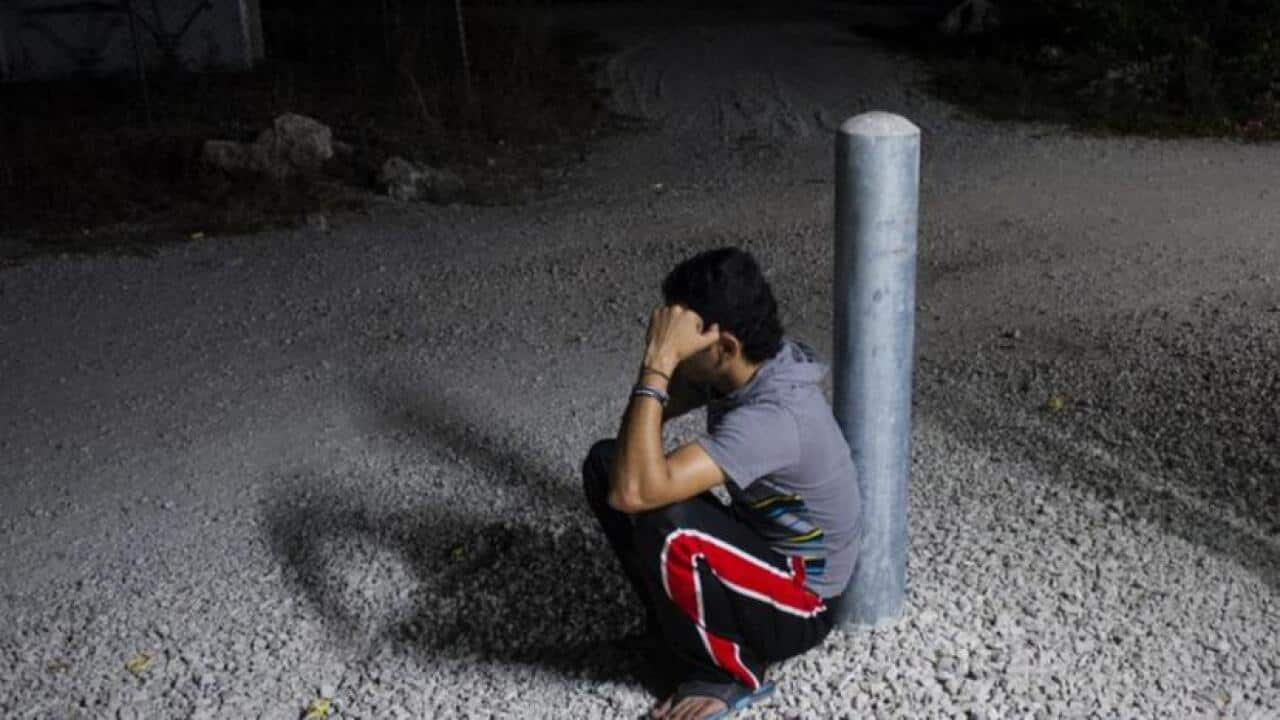KEY POINTS:
- A Tamil refugee is begging the government to prevent her son's deportation.
- Immigration Minister Andrew Giles has the power to intervene.
- Melbourne-based Reeta Arulruban says she was raped by Sri Lankan troops.
This article contains references to sexual harassment and sexual assault.
Reeta Arulruban didn't realise her husband was dead for nearly 24 hours.
As fighting raged during the Sri Lankan Civil War, he had left Reeta, his 13-year-old son Dixtan, and his mother-in-law in the safety of a bunker and ventured out to find food. He was killed during a 2009 shelling campaign labelled a massacre by human rights groups.
The news reported deaths in the area, and friends returning from a local hospital eventually relayed the terrible news.
Forced to keep moving, Reeta, Dixtan and her mother were eventually put in an army-run camp. Ten people were bundled under three-person tarpaulins in sweltering conditions. Drinkable water was hard to come by. Interrogations were a daily occurrence.

Dixtan as a toddler in Sri Lanka.
A Human Rights Watch (HRW) report later found such camps "facilitated sexual abuse".
Even after the trio were released, daily questioning continued in their temporary home. On one occasion, Reeta was raped as Dixtan and her mother waited in the next room.
That prompted a warning from her mother. Reeta was to escape as soon as possible, which she did, arriving in Australia by boat in 2012. Dixtan would stay with his grandmother until he was able to make the journey too.
Reeta's mother died of natural causes in 2016, but Dixtan did eventually make that journey in 2019. The intervening years in detention culminated in a letter from the Department of Home Affairs last month: unlike his mother, he was not a legitimate refugee and would soon be sent back.
Just weeks before Dixtan received the letter, Reeta was granted permanent residency in Australia. She thought that would enable her to sponsor Dixtan in Australia.
Now, she's urging the government, including Prime Minister Anthony Albanese, to use its powers to intervene. She fears Dixtan, as the son of a suspected Tamil Tiger, will face what others have before him: torture and even disappearances.
"[Mr Albanese] was also brought up by a single mother. He understands the bond between the mother and who doesn't have a father," she told SBS News, speaking via a translator.
"In some way, if I'm able to take the story to him, I feel that he is a compassionate person [and] that he would help."
One chance remaining
After her mother died, Reeta tried to sponsor Dixtan to come to Australia in 2016 but Home Affairs rejected her bid.
He then travelled to Australia in 2019 under a different identity, using bogus travel documents, and has been in detention in Melbourne ever since.
Dixtan's application for a Safe Haven Enterprise visa was rejected, the Commonwealth finding he had not suffered targeted discrimination in his home country, and his remaining legal options have been exhausted over the interim three years.

The United Nations estimates around 100,000 people were killed during Sri Lanka's 16-year civil war. Source: Getty / John Moore
Mr Giles himself used his power in March to prevent because their child had Down Syndrome.
Reeta has tried to appeal directly to Mr Giles in a letter, but was not sure he received it; she was told the decision was made by Home Affairs.
"Please don't separate my son and me. Please help us. My son is the only remaining [member] of my family. I feel so sad and depressed, I can't manage and handle the situation," she said.
A spokesperson for Mr Giles told SBS News that the minister "is unable to comment on individual cases".
Human rights groups warn of extrajudicial killings, disappearances of Tamils
The United Nations estimates between 80,000 and 100,000 people died during Sri Lanka's bloody civil war, which erupted in 1983 and continued for 16 years.
The Liberation Tigers of Tamil Eelam (LTTE) fought to establish a separate state for the Tamil minority, a plurality of which are Hindus, after decades of persecution.
HRW found the Sri Lankan authorities had repeatedly bombarded civilians and hospitals in "no fire zones" in 2009, as it crushed the final stand of the LTTE, which was refusing to allow more than 300,000 to flee.

Reeta fears Dixtan, pictured as an adolescent, will face persecution in Sri Lanka.
A separate HRW report warned camps like the one the trio was interned in "facilitated sexual abuse", detailing reports from survivors who reported rapes by Sri Lankan troops. Sexual violence had also been inflicted on males, it found.
While both sides had committed atrocities against civilians, HRW warned that 14 years on the Sri Lankan government remained "in denial" about the crimes committed by its own forces.
Tamil Refugee Council spokesperson Renuga Inpakumar warned Dixtan could become "one of many" Eelam Tamils to face "genocidal actions from the Sri Lankan state" if he was forced to return.
"He has been facing constant anxiety since being given the deportation notice, unsure what he will face from the Sri Lankan state if he was to return," she said.
"He left from feeling unsafe and being a victim of persecution from the Sri Lankan government. He knows if he was to be deported he would lose contact and most possibly be another statistic of the missing persons from the Sri Lankan government."
The United Nations says the Sri Lankan government's Office on Missing Persons, established to trace people missing from the conflict, was full of "individuals implicated in past human rights violations" and had a history of "interference in the prosecution of such cases".
If you or someone you know is impacted by sexual assault, call 1800RESPECT on 1800 737 732 or visit . In an emergency, call 000.











